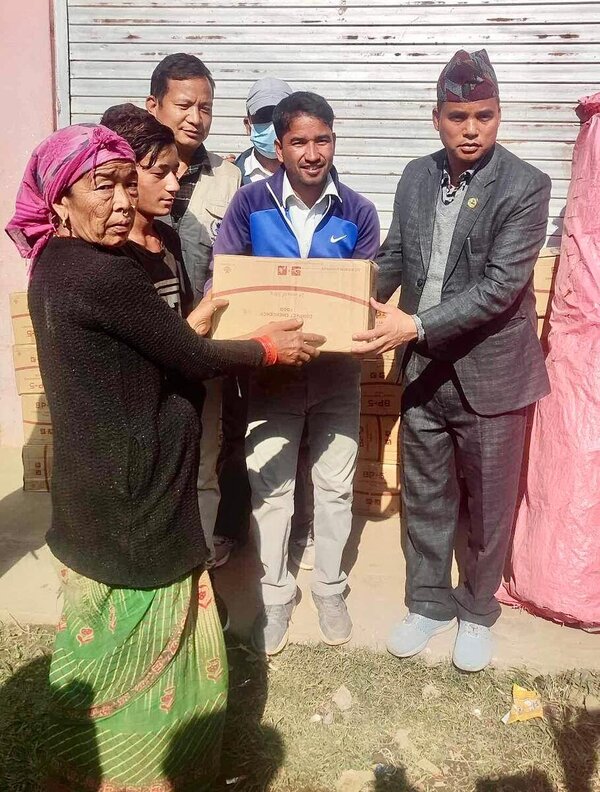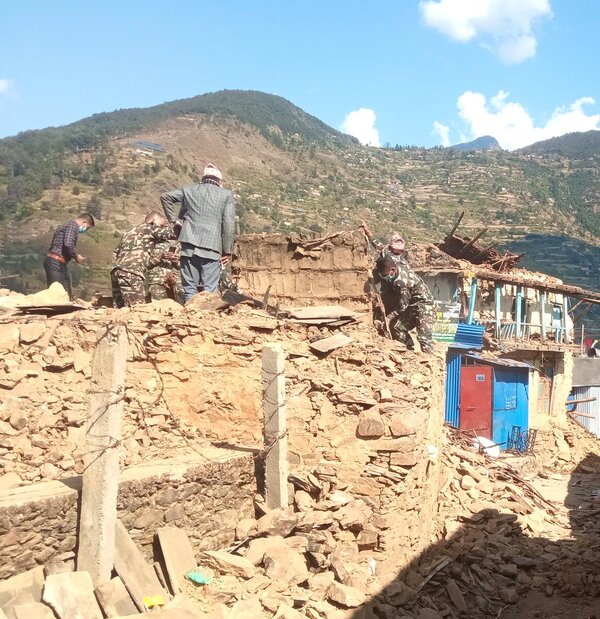Nepal earthquake: WFP at hand as Government and partners work to deliver essentials

The mud structures housing some of Nepal's poorest people never stood a chance – survivors of Friday’s 6.4 magnitude earthquake, which killed 157 people in the country, are sleeping rough after their homes were destroyed.
The World Food Programme (WFP) is supporting the Government of Nepal and partners in mobilizing relief supplies for families who find themselves suddenly without their homes and belongings.
WFP’s despatched 6 metric tons of ready-to-eat emergency food to the affected areas, helping provide sustenance for approximately 7,500 people over three days – with additional reserves on standby.

Families were asleep when the tremor struck around midnight, demolishing scores of houses in Jajarkot and West Rukum, leaving people without shelter.
WFP is in close contact with other UN agencies and humanitarian partners as they respond, assessing the scale of impacts in affected areas.

WFP’s sub-office in Surkhet, in Karnali district, around 300km from Kathmandu, is working with local authorities as it deploys staff to the affected districts to assess needs and coordinate food distributions.


The organization is providing logistics support to the Government and humanitarian partners through its network of Humanitarian Staging Areas.
Located strategically across the country, the staging areas are a crucial part of emergency relief operations run by the Government of Nepal.

Over the weekend, WFP, on behalf of the National Logistics Cluster, has supported the movement of government relief supplies, including blankets, tarpaulin covers and sleeping bags pre-positioned in Kathmandu.
WFP has also supported the despatch of tarpaulin covers and reproductive health and hygiene kits on behalf of humanitarian partners, including the World Health Organization, the UN Population Fund and UNICEF.
The disaster follows the deadly earthquakes that killed more than 1,400 people in Afghanistan in early October. WFP responded to those within hours, distributing fortified biscuits, specialized food to prevent malnutrition in children, along with fortified wheat flour, vegetable oil, pulses and salt to affected families in destroyed villages.
Learn more about WFP's work in Nepal



